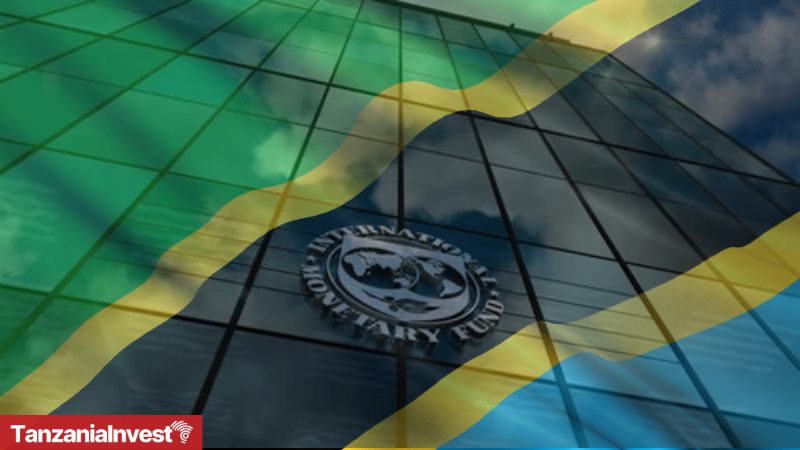On 27 June 2025, the Executive Board of the International Monetary Fund (IMF) concluded the 2025 Article IV Consultation with Tanzania and completed the fifth review under the Extended Credit Facility (ECF) arrangement and the second review under the Resilience and Sustainability Facility (RSF) arrangement, allowing for the immediate disbursement of about USD 448.4 million.
The disbursement includes USD 155.7 million under the ECF and USD 292.7 million under the RSF, bringing Tanzania’s total access under both arrangements to approximately USD 1.25 billion.
Tanzania’s economic conditions have continued to improve, with real GDP growth of 5.5% in calendar year 2024, projected to reach 6.0% in 2025 and 6.5% over the medium term, contingent on continued reform implementation.
Inflation remained stable at 3.2% year-on-year in April 2025, below the central bank’s target, while exchange rate flexibility increased and monetary policy remained neutral or mildly stimulative.
Tanzania’s reform programme under the ECF remains broadly on track.
All end-December 2024 quantitative performance criteria and indicative targets were met.
Two end-December structural benchmarks were completed on time.
Two of the three end-March structural benchmarks were implemented with delays, and the Secured Transaction Act has been reset to end-February 2026.
All five reform measures for this review were implemented, despite delays in indicative timelines.
The third quarter of fiscal year 2024/25 recorded a weakening of the fiscal balance, prompting the Tanzanian authorities to delay non-priority spending in the fourth quarter.
Meanwhile, the current account deficit narrowed to 2.6% of GDP in 2024 from 3.8% in 2023, supported by strong export performance.
The IMF noted that the banking sector remains resilient despite pockets of vulnerability.
The medium-term outlook is positive, conditional on decisive reform implementation to strengthen the business environment and support private sector growth.
However, risks remain tilted to the downside due to external uncertainties, declining aid flows, and potential delays in reform implementation.
IMF Deputy Managing Director and Acting Chair Kenji Okamura stated: “Tanzania’s reform programme supported by the Extended Credit Facility remains broadly on track. The authorities’ strong commitment to reform implementation, as well as continued engagement and capacity support by development partners, are critical.”
He added: “The authorities’ plan to resume growth-friendly fiscal consolidation in FY25/26 is welcome and will require steadfast implementation of revenue measures and strict cash management and commitment controls.”
Okamura also highlighted the need for continued efforts to operationalise the new interest rate-based monetary policy framework, strengthen liquidity forecasting, and address risks in the interbank cash market.
He welcomed the increase in exchange rate flexibility and ongoing efforts to upgrade financial supervision.
The IMF Executive Board also welcomed Tanzania’s continued economic growth, stable inflation, and improved external position.
Directors emphasised the importance of maintaining macro-financial stability and achieving inclusive, resilient growth through consistent reform implementation under the ECF and RSF.
They encouraged the Tanzanian authorities to pursue fiscal consolidation in FY25/26, enhance domestic revenue mobilisation in line with the new medium-term revenue strategy, and improve public financial and investment management.
The Board also called for prudent budget execution in the election year and enforcement of commitment controls to manage public spending.
On monetary policy, Directors supported the current stance but urged readiness to adjust if inflationary pressures emerge.
They emphasised strengthening monetary operations, enhancing policy communication, and maintaining central bank independence.
The Board also stressed the need for greater exchange rate flexibility and the removal of multiple currency practices.
Directors called for accelerated structural reforms to foster private sector-led growth and job creation, including improvements in tax administration, access to finance, regulatory efficiency, and infrastructure development.
They also recommended increased investment in education, health, and social safety nets, and further progress in climate-related reforms under the RSF.
The 40-month ECF arrangement for Tanzania was originally approved in July 2022 with a total access of approximately USD 1.05 billion and extended by six months in June 2024.
The 23-month RSF arrangement was approved in June 2024 to support climate resilience and economic sustainability.
The next Article IV Consultation with Tanzania is expected to take place in line with the IMF’s regular consultation cycle for countries with Fund arrangements.










